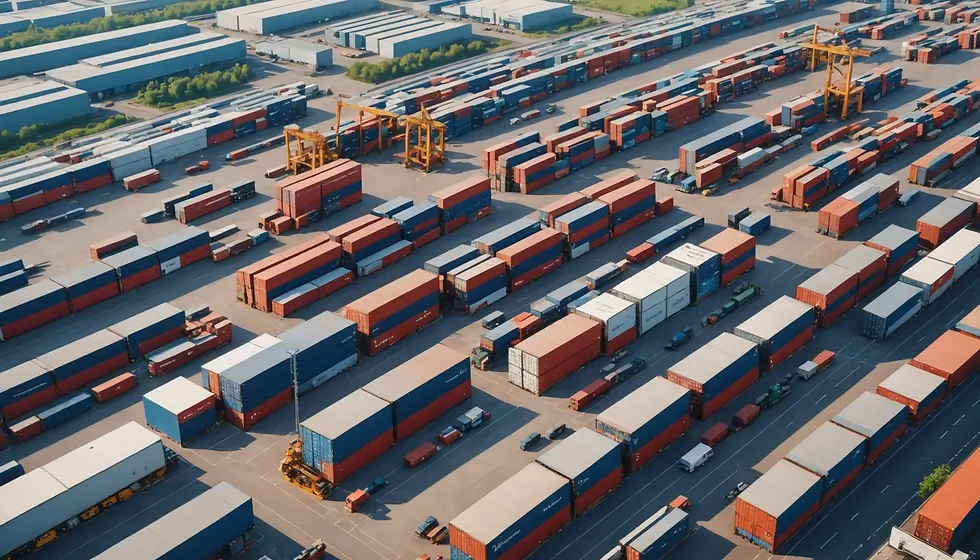Unraveling the Enigma: Navigating the Implications of Industry 5.0 for Your Business Strategy
- Chelsea Toh
- Jan 18
- 4 min read
Every business today stands at a pivotal moment in the industrial evolution. From the rise of automation in Industry 4.0 to the upcoming human-centric focus of Industry 5.0, organizations must rethink their strategies to stay relevant. Industry 5.0 emphasizes collaboration between humans and machines, integrating advanced technologies to enhance the quality of life and support human creativity. Here, we delve into the essence of Industry 5.0, its implications for current and future business strategies, and the steps companies can take to adapt effectively.
What is Industry 5.0?
Industry 5.0 represents a shift towards a human-centric approach to industrial processes. This evolution stresses collaboration between humans and machines, aiming to enhance efficiency while acknowledging the irreplaceable qualities that humans bring, such as creativity and emotional intelligence. For instance, while automation efficiently handles repetitive tasks, it’s the human ability to innovate and solve problems that will set businesses apart.
According to a recent study, 87% of companies believe that human intelligence will remain key to innovation despite increasing automation. More than just technology, Industry 5.0 champions the idea that technology should serve to augment human capacity, leading to a more sustainable and innovative future.
Key Characteristics of Industry 5.0
Human-Centric Collaboration
The concept of "cobots," or collaborative robots, represents the future of teamwork in industrial settings. For example, companies such as BMW have successfully integrated cobots alongside their assembly line workers, freeing humans from monotonous tasks and allowing them to focus on more strategic roles. This collaboration can enhance productivity by up to 20%, as employees are empowered to leverage their unique human skills.
Sustainable Practices
Environmentally friendly practices are crucial in Industry 5.0. As consumers increasingly favor eco-conscious brands, companies must innovate to minimize waste. For instance, a 2020 survey found that 73% of consumers are willing to pay more for sustainable products. Firms like Unilever have successfully implemented sustainable sourcing programs, leading to a reported 5% increase in sales due to their commitment to eco-friendly practices.
Personalization through Technology
The rise of AI and machine learning enables businesses to offer personalized experiences. Retail giant Amazon uses advanced algorithms to analyze customer behavior, leading to tailored recommendations that boost sales by 29%. Industry 5.0 encourages businesses to go further, creating a dynamic shopping experience that evolves with individual customer preferences.
Resilience and Agility
The COVID-19 pandemic accelerated the need for business resilience. Companies must diversify their supply chains and embrace agile practices to respond to market shifts. A study by McKinsey shows that businesses with resilient supply chains can improve operational efficiency by 30% or more. Taking a proactive approach will ensure long-term sustainability and adaptability to future challenges.
Implications for Current Business Strategy
Rethinking Workforce Development
Businesses must invest in training programs that equip employees to collaborate with advanced technology. A report from the World Economic Forum states that nearly 70% of jobs will require skills related to technology and collaboration by 2025. Implementing continuous learning frameworks will better prepare employees for future challenges and innovations.
Redefining Value Propositions
Leaders should define success more broadly than just profitability. Successful businesses will integrate social impact, customer satisfaction, and sustainability into their core strategies. For example, Patagonia’s commitment to environmental activism has not only strengthened its brand loyalty but also led to a 30% annual sales growth.
Integrating Advanced Technologies
To keep pace with Industry 5.0, investing in essential technologies is inevitable. Digital ecosystems that leverage AI, IoT, and automation will provide opportunities for meaningful insights. Companies like Siemens are already using IoT to monitor energy consumption across their plants, leading to a 20% reduction in energy costs through optimized processes.
Implications for Future Business Strategy
Customer-Centric Innovations
Future strategies must emphasize understanding customer needs. By effectively leveraging customer feedback through advanced analytics, companies can create products that truly resonate with users. Brands like Nike have adopted a direct-to-consumer model, allowing them to connect more deeply with their customers and adapt quickly to market demands.
Fostering Collaborative Environments
Innovation thrives in collaborative ecosystems. Companies should seek partnerships with other businesses, tech developers, and academic institutions to encourage a flow of ideas. For instance, the collaboration between NASA and various tech companies has led to numerous innovations benefiting the space industry and everyday consumer products.
Emphasizing Ethical Considerations
As technology advances, ethical considerations around data privacy and sustainability will grow in importance. Businesses must hold themselves accountable through transparent operations, ensuring consumer trust. Companies like Microsoft have taken steps to publish annual sustainability reports, showcasing their commitments to ethical practices in technology deployment.

A Forward-Thinking Approach
Transitioning into the era of Industry 5.0 requires businesses to adopt new strategies. By emphasizing human-centered collaborations, sustainable practices, and innovative technologies, organizations can redefine their operational and strategic frameworks.
Industry 5.0 presents immense opportunities for growth and competitiveness. By staying agile and proactive, businesses can not only enhance productivity but also improve customer satisfaction and achieve a sustainable future.
Understanding these shifts and aligning strategies with the principles of Industry 5.0 will lead to a more inclusive, intelligent industrial landscape. As we navigate this transformation, embracing these principles is essential for long-term success and relevance in a rapidly changing world.



